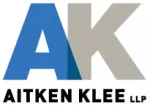Actavis had been named as a respondent in an application under the Patented Medicines (Notice of Compliance) Regulations in respect of two patents listed on the Patent Register against Alcon's 0.1% olopatadine solution, PATANOL. Alcon discontinued its prohibition application shortly before the hearing was to commence (for more details on the background, see here).
Actavis then started an action in the Ontario Superior Court seeking relief under section 8 of the PM(NOC) Regulations as well as under the Ontario and UK Statute of Monopolies. Alcon then brought a motion to have Actavis' claims under the Statues of Monopolies struck as premature.
The test for a motion to strike under Rule 21.01(1) is whether it is plain and obvious, assuming the facts pleaded to be true, that the pleading discloses no reasonable cause of action. While claims under Statutes of Monopolies had previously survived similar motions to strike (see our previous post here), Alcon argued that an essential element for such a claim is a prior finding that the relevant patent is invalid. Since there has been no declaration that Canadian Patent No. 2,195,094 was invalid, Justice Akbarali agreed that Actavis' claim under the both Statutes of Monopolies was premature:
[14] I agree with the parties that an in rem declaration of invalidity is an essential element of a claim under the Statutes of Monopolies. In Apotex Inc. v. Eli Lilly and Company, 2015 ONSC 5396, at para. 44, Dunphy J described the "trigger" of a claim under the Statutes of Monopolies as the originator "taking the voluntary step of procuring what is now proved to have been an unlawful monopoly by way of void letters patent and then putting that unlawful monopoly into use, exercise or execution in such a manner as to grieve or disquiet [the generic manufacturer]".
...
[17] A statement of claim must disclose a presently existing, legally recognized claim against the defendant: Gevaert v Arbuckle (1998), 26 CPC 4th 207 (Ont Gen Div) at para. 18. At the moment, the most that can be said about the plaintiff's claims under the Statutes of Monopolies is that they may arise if the declaration of invalidity is sought and granted. In argument, counsel for the defendants agreed that, if a declaration of invalidity is sought and granted by the Federal Court, any limitation period under the Statutes of Monopolies would begin to run at that time, and that no limitation period has yet begun to run. There is thus no prejudice to the plaintiff if its claims are struck
Actavis' representation that it intended to bring an action in the Federal Court seeking a declaration that the 094 Patent was invalid (made in an affidavit filed on the motion) was not sufficient to save its claims under the Statutes of Monopolies.
First person under the PM(NOC) Regulations.
Alcon also sought to strike pleading that one of the co-patentees, Kyowa, was in "complete control" of Alcon Canada and therefore was a "first person" for the purpose of the section 8 claim under the PM(NOC) Regulations. Justice Akbarali held that the law on who is a "first person" was not settled. While this has often been pleaded where the patentee and brand company are part of the same corporate family, Justice Akbarali held that it was not plain and obvious that "complete control" requires control in the traditional corporate sense:
[26] At its essence the question is whether "control" for the purposes of being a first person under s. 8 of the PMNOC can only mean "control" in the traditional sense of corporate structure, or whether "control" can have a broader meaning in this context. In other words, if a corporation controls a corporation that is a first person by reason of something other than their corporate structures, is it frivolous to plead that the controlling corporation is also a first person?
...
[28] Certainly where corporations are related, complete control may be easier to make out, but this is not a trial on the merits. I am not prepared to find, at this early stage, in the face of the pleading that Kyowa exerted complete control over Alcon Canada in respect of matters relevant to the PMNOC, that it is frivolous to claim that Kyowa is also a first person.
Product Switching
Justice Akbarali also refused to strike Actavis' plea that Alcon had undertaken an "anti-competitive product switching campaign" by directing prescriptions for PATANOL towards an alternate product, PATADAY, thereby destroying the market for Actavis' proposed generic olopatadine product. While the claim was a serious one, it was not incapable of proof and was relevant to the assessment of Actavis' damages under the PM(NOC) Regulations.
A copy of Justice Akbarali's Endorsement may be found here.
The content of this article is intended to provide a general guide to the subject matter. Specialist advice should be sought about your specific circumstances.

